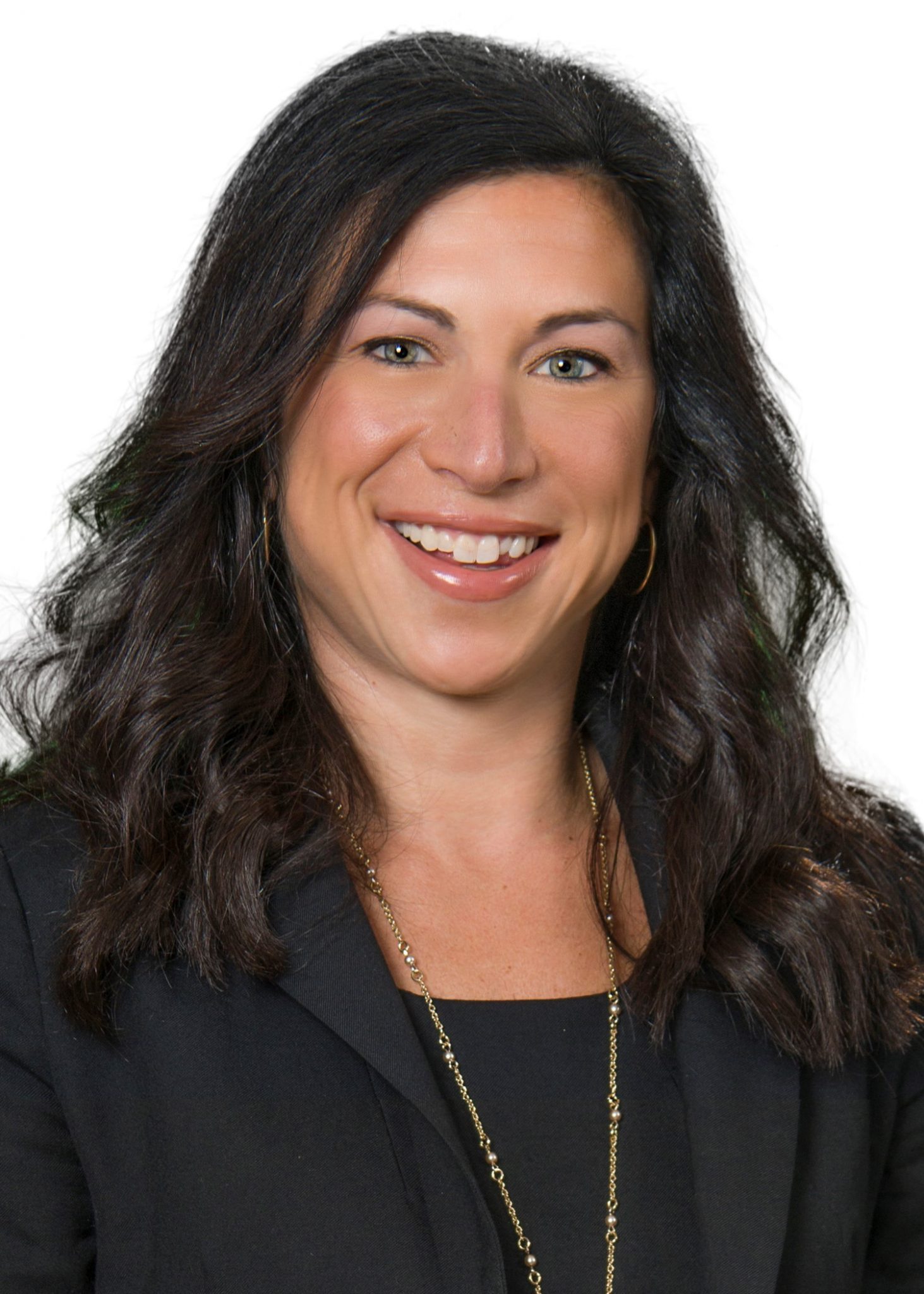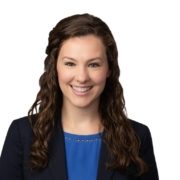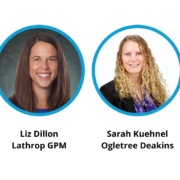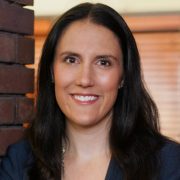Spotlight on Flex – Heidi B. (Goldstein) Friedman
The Spotlight on Flex showcases professionals from member organizations who exemplify personal and professional success while working a flexible schedule. Their stories illustrate the long-term benefits that flexible schedules offer to both individuals and organizations.
For August 2018, we are pleased to share insights from Heidi B. (Goldstein) Friedman, Partner at Thompson Hine (Cleveland, OH).
Diversity & Flexibility Alliance: How have you made flexibility a priority and a success through your schedule?
Heidi (Goldstein) Friedman: There is a reason that I have been at Thompson Hine for 23 years. The firm has always supported my practice as well as my personal life and professional interests. I started flexing my schedule 18 years ago after I had my first child, who is now leaving for college! My initial flexible arrangement started with a slight reduction in overall billable hours, and although I focused on flexibility where I was able to grab it, my goal was to take every other Friday off with my newborn daughter to see what those mommy and me classes were all about. Over time and after I had my son three years later, I would aim to take one day off each week, and I also added some telecommuting to the mix. To me, the key was being able to work flexible hours in a flexible location. As my children grew, so did my practice, and my life circumstances also changed. I was suddenly a single parent and promoted to partner while trying to build a national practice that required quite a bit of travel. There is no doubt that my kids were my priority, and I had to be present in any way I could. At the same time, I wanted every client to feel like they were also a priority (and they are) and that I was honored to be a part of their team.
Even though my kids are older and require less attention (i.e., they don’t like being around me nearly as much!), I still want to remain engaged with them. Additionally, I have worked very hard to build a strong practice supporting large manufacturing companies on environmental, health and safety issues, so I still spend quite a bit of time on airplanes. Although I have now long been committed to the firm at full time plus, I continue to use flexibility as a way to be successful by telecommuting multiple days a week. My days fill up quickly with client meetings and travel but also with my kids’ activities and appointments. I try my best to never miss a soccer game or track meet for my son, and I definitely did not want to miss a single event during my daughter’s senior year
While my hours and schedule have changed over the years, my focus on making sure I also provide valuable and innovative client service delivery, has not. Flexibility lets me determine when and where I work without sacrificing responsiveness and service to my clients. At the end of the day, I want to be my best self for my clients and my family, and flexibility allows me to do this.
The firm did not have a formal policy when I first broached the subject of working flex 18 years ago. It was more of a “you get what you negotiate” process. I had medical issues with both of my pregnancies, and my practice group leader never hesitated to give me the time I needed. Thompson Hine has always been immensely supportive with a “family first” mentality and culture, and my reduced hours schedule was never a detriment to my professional development. During my second pregnancy, my doctor ordered three months of mandatory bed rest and I could not work at all; yet shortly after my son was born, I made partner. That was close to 16 years ago, and this is just one of the many reasons why I have stayed with the firm for 23 years!
I have the best team in the world, and several of the men who work with me are the most engaged and amazing fathers I have ever seen. I would never question it if they were not in the office, if they went home for dinner, or left to attend one of their kids’ events. I fully support that and encourage them to do so. Work is not limited to normal business hours these days; in most cases, you can control when and where it happens and provide yourself flexibility around delivery. Men want to be just as present with their families as women do, and it is really important to not view flex as a solely a women’s issue.
DFA: How have the firm and clients contributed to your flex success? How has flexibility contributed to your business development and sustainability of working at a firm?
HGF: The vast majority of my clients know I often work from home, and it does not matter to them if I am at the office, at my home or if I just finished a meeting with EPA when I return their call and provide them with solutions to their legal issues that align with their business goals. Most of my clients call my cell phone first if they need to reach me, and I pride myself on being uber-responsive. Flexibility has contributed to my business development too. My clients know my involvement with national organizations and my commitment to women’s issues, and I have helped a number of them create their own women’s programs and initiatives. My personal flex experience is one example I often use when speaking with in-house counsel on how to retain and promote women (and men). I have always been very open with my clients about my personal story regarding flex, life situations, and work, which has been a way for me to connect with those clients who have gone through similar situations.
DFA: Looking back, what would you tell your first year associate self? Would you do anything differently?
HGF: I am not sure if I would do anything differently. The best advice I would give is don’t be afraid to ask for what you need to make yourself happy or more successful. I cannot tell you how many times younger associates come see me (often female associates) to express their frustrations. My first question is always, “Have you talked to anyone about this?” The answer is almost always “No.” I try to help them create plans that will allow them to find the success or happiness they want – sometimes it can be as simple as changing their schedule or the team they are working with currently. A lot of people expect someone to come to find them and ask, “Are you happy? What can I do for you?” I try hard to do this for those people I value or those that I have developed a relationship with both inside and outside the firm, but the reality is that in most cases, this is not going to happen in today’s busy world. Fortunately, Thompson Hine is extremely innovative, and more importantly, willing to innovate. It is really about asking for what you want here.
I also realized later in my career that you need a really good sponsor – someone who is going to stand up and fight for why you deserve to be paid “x” amount or why you deserve this opportunity. Women tend to think they need another woman to be their sponsor, but some of my best sponsors have been men. At most firms, the leadership tends to be male-dominated. Only looking for a woman is going to narrow your ability to find a good sponsor. The key is finding someone who feels invested in you and your success. Once you find that person, treat him or her like gold – such a relationship is priceless. Thompson Hine has many women in leadership roles, including Debbie Read who is the firm’s Managing Partner, and five out of nine of our Executive Committee members are women or diverse.
DFA: How do you pay it forward, and how do you recharge your batteries?
HGF: I started the firm’s women’s initiative with April Miller Boise (now Senior Vice President, General Counsel and Corporate Secretary at Meritor, Inc.) over 10 years ago. At the time, several of the larger accounting firms had launched women’s programs, but Thompson Hine was one of the first national law firms to have a formal women’s initiative that was both inward and outward facing. Several of the firm’s offices had ad hoc women’s programs, but there was no coordination (some duplication), and no mission. With the support and push from our previous managing partner, David Hooker, we convened a group of partners to formulate the mission of our Spotlight on Women Program®, which included the dual goals of connecting professional women in the cities where we have a presence and hiring, retaining and promoting women at our firm.
For example, we created a mother-to-be mentoring program that paired expectant moms with a mentor who had been through the process. We developed and implemented a gender-neutral flexible schedule policy and created a flex coordinator position to serve as a liaison between the practice group leaders and the associate’s committee. The key is that we don’t call it a part-time policy – it is a true flexible schedule policy where not only do men utilize it, but they had seats at the table during the implementation stage.
I also helped formalize the 1,500 Women in the Law Committee for the Defense Research Institute (DRI), the largest defense bar organization in the country. Last October was the end of my two-year tenure as head of that committee, and it’s become one of the organization’s most productive. It provides members with many leadership, speaking and networking opportunities, and that has been a wonderful way for me to pay it forward.
In addition I’m involved in a variety of local, regional and national programs supporting women in the law. I worked with Ann Harlan (former General Counsel of Smuckers; currently co-founder of Harlan Peterson Consulting) to help establish Case Western Reserve University School of Law’s Women in the Law Institute. I have also been active in the National Association of Women Lawyers, DirectWomen (with the mission to put more women on corporate boards), the University of Texas Women’s Consortium and I currently serve as a liaison to the American Bar Association’s Commission on Women. I speak and write regularly on topics related to flexibility and supporting women in the law at a variety of conferences and programs.
Although I enjoy my involvement with these organizations and the relationships (both mentor and mentee) that I have developed, to me, the most important way to pay it forward is to support other men and women who are trying to succeed. If you do not have someone providing guidance, you will struggle to be successful. I try to mentor and sponsor people at the firm by assigning them meaningful work and supporting them in their business development efforts. It is also about making sure they are as happy as possible, including supporting their family lives and needs to work flexibly. I also try to mentor and support women outside of the firm who have met through these various organizations.
Doing yoga, traveling, and drinking wine all help me relax and revitalize! I remarried three years ago, and any time I can spend with my incredible husband is also a recharge for me.
If you are a professional working a flexible schedule and would like to share your story in an upcoming Spotlight on Flex, contact Eliza Musallam.








